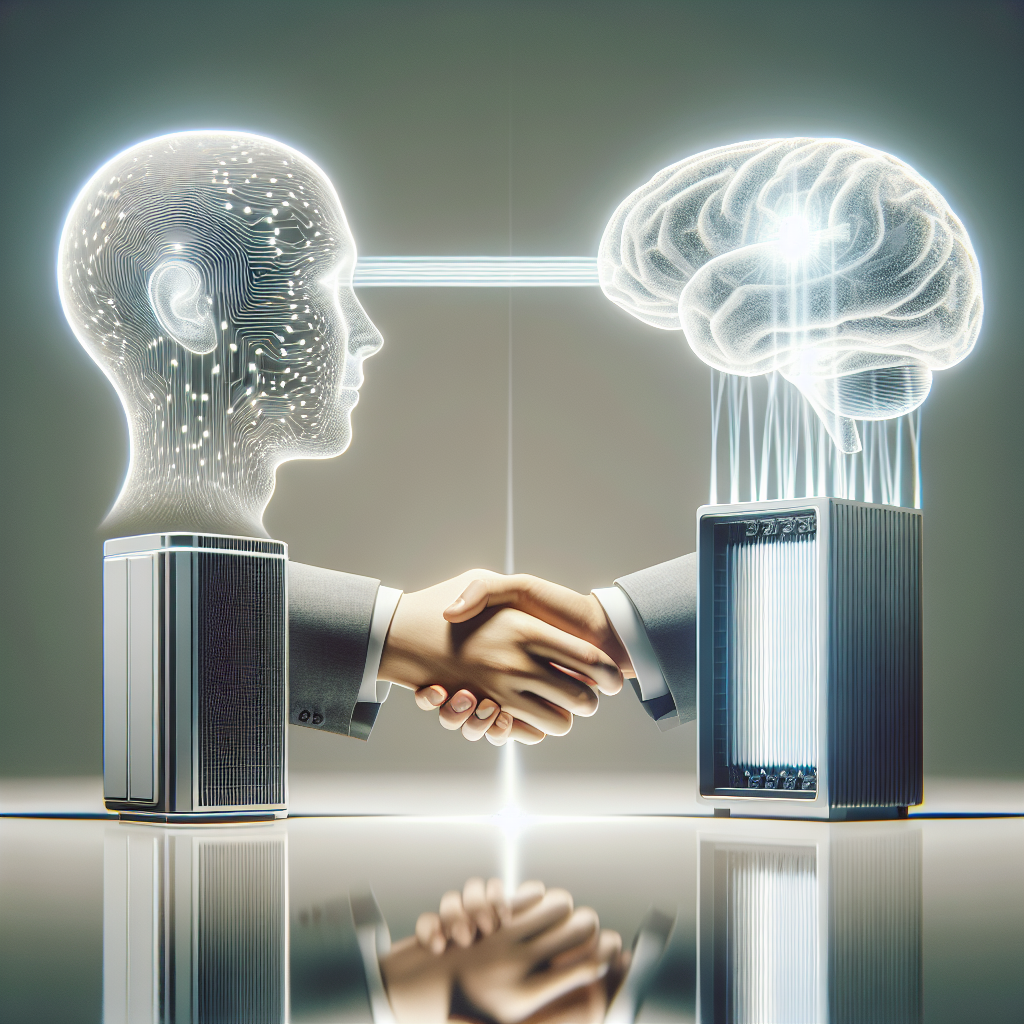Artificial General Intelligence (AGI) is a topic that has been gaining increasing attention in recent years. AGI refers to machines that possess the ability to perform any intellectual task that a human can do. This includes tasks such as reasoning, problem-solving, learning, and understanding natural language. The ultimate goal of AGI is to create machines that are as intelligent as humans, or even surpass human intelligence.
Human intelligence, on the other hand, is the cognitive ability of humans to learn, understand, reason, and solve problems. It is what sets humans apart from other species on Earth and has allowed us to achieve incredible advancements in technology, science, and culture.
Bridging the gap between AGI and human intelligence is a complex and challenging task. While AGI has made significant advancements in recent years, there are still many hurdles to overcome before machines can truly match human intelligence. In this article, we will explore the differences between AGI and human intelligence, the challenges of bridging the gap, and potential ways to achieve this goal.
Differences between AGI and Human Intelligence
While AGI aims to replicate human intelligence, there are several key differences between the two. One of the main differences is the way in which AGI processes information. Human intelligence is based on a complex network of neurons in the brain that work together to process information and make decisions. AGI, on the other hand, relies on algorithms and computer programming to process information.
Another difference is the way in which AGI learns. Humans learn through a combination of experience, reasoning, and intuition. AGI, on the other hand, learns through data and algorithms. While AGI can process vast amounts of data at incredible speeds, it lacks the intuition and creativity that humans possess.
Challenges of Bridging the Gap
There are several challenges that must be overcome in order to bridge the gap between AGI and human intelligence. One of the main challenges is the complexity of human intelligence. The human brain is a highly complex organ that is still not fully understood by scientists. Replicating this level of complexity in a machine is a daunting task that will require significant advancements in technology and research.
Another challenge is the ethical implications of AGI. As machines become more intelligent, there is a concern that they may surpass human intelligence and pose a threat to society. This has led to debates about the ethics of creating AGI and the potential consequences of doing so.
Finally, there is the challenge of achieving true artificial general intelligence. While AGI has made significant advancements in recent years, it is still far from achieving the level of intelligence and adaptability that humans possess. In order to bridge the gap between AGI and human intelligence, researchers will need to develop new algorithms, technologies, and methodologies that can replicate the complexity of human intelligence.
Potential Ways to Achieve AGI
Despite the challenges, there are several potential ways to achieve AGI. One approach is to continue developing deep learning algorithms that can process vast amounts of data and learn from it. Deep learning has already made significant advancements in areas such as image recognition, natural language processing, and speech recognition. By further developing these algorithms, researchers may be able to create machines that are more intelligent and adaptable.
Another approach is to combine different types of AI technologies to create a more holistic system. For example, researchers could combine deep learning with symbolic reasoning, reinforcement learning, and other AI techniques to create a more versatile and intelligent system. By combining these different approaches, researchers may be able to create machines that can reason, learn, and adapt like humans.
FAQs
Q: Will AGI surpass human intelligence?
A: It is difficult to predict whether AGI will surpass human intelligence. While AGI has made significant advancements in recent years, it is still far from achieving the level of intelligence and adaptability that humans possess. Whether AGI will surpass human intelligence will depend on future advancements in technology and research.
Q: What are the ethical implications of AGI?
A: The ethical implications of AGI are a topic of much debate. As machines become more intelligent, there is a concern that they may surpass human intelligence and pose a threat to society. Some argue that AGI could lead to job displacement, loss of privacy, and even existential threats to humanity. Others believe that AGI could bring about incredible advancements in technology, science, and culture.
Q: How close are we to achieving AGI?
A: While AGI has made significant advancements in recent years, we are still far from achieving true artificial general intelligence. Researchers are continuing to develop new algorithms, technologies, and methodologies that can replicate the complexity of human intelligence. It is difficult to predict when AGI will be achieved, but researchers are making progress towards this goal.
In conclusion, bridging the gap between AGI and human intelligence is a complex and challenging task. While AGI has made significant advancements in recent years, there are still many hurdles to overcome before machines can truly match human intelligence. By continuing to develop new algorithms, technologies, and methodologies, researchers may be able to achieve AGI in the future. However, there are still many ethical and societal implications that must be considered before AGI becomes a reality.

